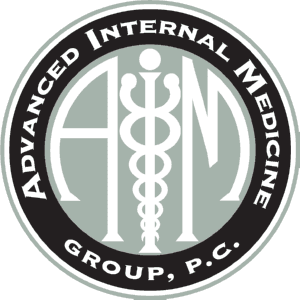Stomach pain is a common ailment that most of us have experienced at some point. It can range from mild discomfort to severe agony, and pinpointing the cause can sometimes feel like solving a mystery. Understanding the various reasons behind stomach pain can help you manage it effectively. Let’s explore some of the most common causes and how to treat them.
What Are Common Causes Of Stomach Pain?
1. Food Poisoning: Food poisoning occurs when you consume food or water contaminated with bacteria, viruses, parasites, or toxins. Symptoms typically include stomach cramps, nausea, vomiting, diarrhea, and sometimes fever. Food poisoning can happen from consuming raw or undercooked meat, contaminated fruits and vegetables, or foods prepared in unhygienic conditions.
Treatment: The primary treatment for food poisoning is to stay hydrated by drinking plenty of fluids, preferably water or electrolyte solutions. Rest your stomach by avoiding solid foods for a few hours, then gradually reintroduce bland, easy-to-digest foods like rice, bananas, and toast. If symptoms persist or worsen, seek medical attention.
2. Indigestion: Indigestion, also known as dyspepsia, is a common condition characterized by discomfort or pain in the upper abdomen. It can be triggered by overeating, eating too quickly, fatty or spicy foods, alcohol, stress, or smoking. Symptoms include bloating, belching, nausea, and a burning sensation in the chest (heartburn).
Treatment: Over-the-counter antacids can help neutralize stomach acid and relieve indigestion symptoms. Avoiding trigger foods and eating smaller, more frequent meals can also prevent indigestion. If symptoms persist or recur frequently, consult a doctor for further evaluation.
3. Constipation: Constipation refers to infrequent bowel movements or difficulty passing stools. It can cause abdominal pain, bloating, and discomfort. Common causes of constipation include a low-fiber diet, dehydration, lack of physical activity, certain medications, and ignoring the urge to have a bowel movement.
Treatment: Increase fiber intake by consuming more fruits, vegetables, whole grains, and legumes. Drink plenty of water to stay hydrated, as dehydration can worsen constipation. Regular exercise and establishing a consistent bathroom routine can also help alleviate constipation. In some cases, over-the-counter laxatives may be necessary, but consult a doctor before using them regularly.
4. GERD (Gastroesophageal Reflux Disease):
GERD is a chronic digestive disorder where stomach acid flows back into the esophagus, causing irritation and inflammation. Symptoms include heartburn, regurgitation, chest pain, difficulty swallowing, and a chronic cough.
Treatment: Lifestyle changes are often the first line of defense against GERD. These include maintaining a healthy weight, avoiding trigger foods (like citrus, tomatoes, caffeine, and chocolate), not eating late at night, and elevating the head of your bed. Over-the-counter medications like antacids, H2 blockers, and proton pump inhibitors can also help reduce stomach acid production.
5. Lactose Intolerance: Lactose intolerance is the inability to digest lactose, the sugar found in milk and dairy products. It occurs when the body doesn’t produce enough lactase enzyme. Symptoms include abdominal cramps, bloating, diarrhea, and gas, typically occurring after consuming dairy products.
Treatment: The primary treatment for lactose intolerance is avoiding lactose-containing foods. Fortunately, many lactose-free or lactose-reduced dairy products are available. You can also take lactase enzyme supplements before consuming dairy to help digest lactose more effectively.
6. Appendicitis: Appendicitis is inflammation of the appendix, a small pouch located in the lower right abdomen. It can cause sudden, severe abdominal pain, often starting near the navel and migrating to the lower right abdomen. Other symptoms include loss of appetite, nausea, vomiting, fever, and tenderness in the abdomen.
Treatment: Appendicitis is a medical emergency that requires immediate treatment. If you suspect appendicitis, seek medical attention right away. Treatment usually involves surgery to remove the inflamed appendix (appendectomy) before it ruptures and causes further complications.
Stomach pain can stem from various causes, ranging from minor issues like indigestion to serious conditions like appendicitis. Knowing the symptoms and treatments for each can help you manage your stomach pain effectively. However, if you’re unsure about the cause of your stomach pain or if it persists despite home remedies, it’s important to consult a healthcare professional for proper diagnosis and treatment. Remember, your health is too precious to ignore.
AIM Group Offers Primary Care & House Calls In East Hills, NY
At Advanced Internal Medical Group in East Hills, NY we have 40 years of experience providing care with over 20 services in primary care, house call appointments, and more. To learn more about any of our services, call 516-352-8100 to speak with one of our team members.

